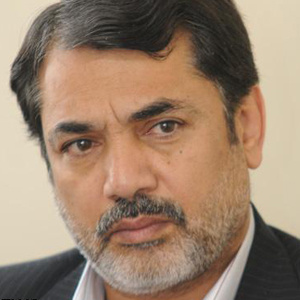West, Torn between Its Strategic Interests and Israel’s Demands
West needs to interact with Iran while strategic alliance with Israel forces it to consider the demands of the Jewish state. Commentary by Hosein Ruyvaran, Middle East affairs analyst.

The partnership between Israel and West rises from their strategic policies. These policies are not affected by short-lived stances, though currently we are witnessing that West and Israel have differences over the Middle East peace process and Jewish settlements.
West wants Israel to put an end to construction of Jewish settlements, a demand that Israel fiercely opposes. Interestingly, the cabinet in power in Israel is a war cabinet which accepts no solutions to end the crisis since it is formed by radical right groups which are not willing to defuse the crisis. The Israeli cabinet insists to continue its hard-line policies which necessitate construction of more settlements.
The only compromise Netanyahu is ready to make in order to gain the consent of West is laying the groundwork for West Bank’s economic growth. Even in this plan, the Palestinian economy will depend on and develop in the hands of Israel. It seems that the Israeli government is trying to rule out all political solutions to Palestinians’ plight.
The truth is that the current Israeli cabinet inclines towards war rather than peace. To advance its hawkish policies, Tel Aviv is trying to demonize Iran and masquerade its own warmongering nature. Israelis are breaking their neck to introduce Iran as a threat to the Middle East, in order to distract attentions from the Palestinian case.
The entire Israeli statesmen are contributing to this project and in his European tour the Israeli Prime Minister Benjamin Netanyahu is going to put Iran on the top of the negotiations’ agenda. Iran’s threat is just the red herring Israel uses so that the international community forgets how it has stalled the peace process by violation of all agreements.
West and the Necessity of Talks with Iran
It seems that Israel has faced challenges in promotion of its anti-Iran policy. Basically, West regards Iran as a regional power with which it is forced to interact. In order to preserve its strategic interests, West has got to talk with Iran. Meanwhile, its strategic alliance with Israel compels it to consider Israel’s interests. Due to this paradox, West may not reach a decisive conclusion how to respond to objectives and demands put forward by the Israeli prime minister.
West wants Israel to put an end to construction of Jewish settlements, a demand that Israel fiercely opposes. Interestingly, the cabinet in power in Israel is a war cabinet which accepts no solutions to end the crisis since it is formed by radical right groups which are not willing to defuse the crisis. The Israeli cabinet insists to continue its hard-line policies which necessitate construction of more settlements.
The only compromise Netanyahu is ready to make in order to gain the consent of West is laying the groundwork for West Bank’s economic growth. Even in this plan, the Palestinian economy will depend on and develop in the hands of Israel. It seems that the Israeli government is trying to rule out all political solutions to Palestinians’ plight.
The truth is that the current Israeli cabinet inclines towards war rather than peace. To advance its hawkish policies, Tel Aviv is trying to demonize Iran and masquerade its own warmongering nature. Israelis are breaking their neck to introduce Iran as a threat to the Middle East, in order to distract attentions from the Palestinian case.
The entire Israeli statesmen are contributing to this project and in his European tour the Israeli Prime Minister Benjamin Netanyahu is going to put Iran on the top of the negotiations’ agenda. Iran’s threat is just the red herring Israel uses so that the international community forgets how it has stalled the peace process by violation of all agreements.
West and the Necessity of Talks with Iran
It seems that Israel has faced challenges in promotion of its anti-Iran policy. Basically, West regards Iran as a regional power with which it is forced to interact. In order to preserve its strategic interests, West has got to talk with Iran. Meanwhile, its strategic alliance with Israel compels it to consider Israel’s interests. Due to this paradox, West may not reach a decisive conclusion how to respond to objectives and demands put forward by the Israeli prime minister.

